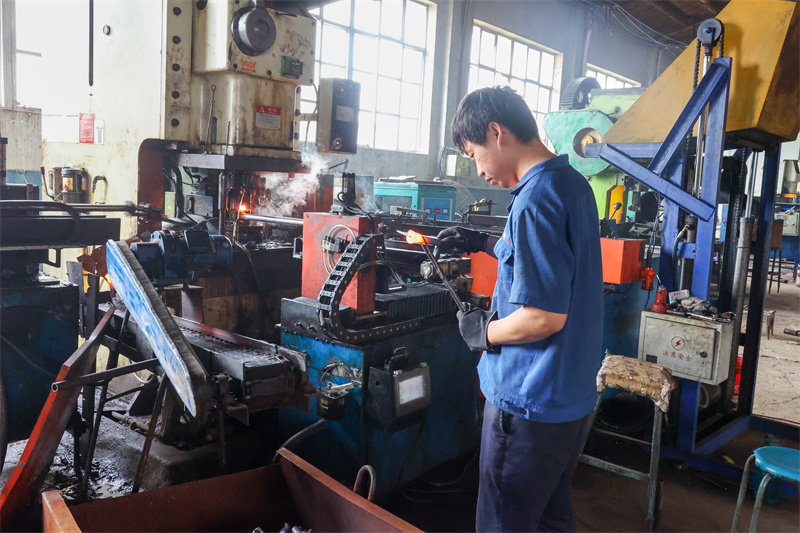FACEBOOK Selecting the correct wheel studs and bolts is critical when it comes to maintaining the safety and performance of your truck or semi-trailer. With so many options on the market, making the right choice can be overwhelming. However, knowing the different types of wheel studs and bolts and their specifications can help you make an informed decision.
Selecting the correct wheel studs and bolts is critical when it comes to maintaining the safety and performance of your truck or semi-trailer. With so many options on the market, making the right choice can be overwhelming. However, knowing the different types of wheel studs and bolts and their specifications can help you make an informed decision.
The Difference Between Wheel Studs and Bolts
Wheel studs and bolts are used to secure wheels to the axles of a truck or semi-trailer. A stud is a cylindrical rod with threads on both ends, while a bolt has a threaded shaft and a head for turning. Depending on the make and model of your vehicle, you may need wheel studs or studs.
wheel bolts
Wheel studs are commonly used in most truck and semi-trailer applications. They are inserted through the hub and held in place with nuts. Some vehicles require a press-fit that is held in place by the hub. There are two main types of wheel bolts: threaded and press-fit.
Threaded wheel studs are available in a variety of lengths, diameters and thread sizes. They can also be made of different materials such as steel, aluminum and titanium. Steel is the most common material and is suitable for most applications. Aluminum wheel studs are often used in racing applications to save weight, while titanium is the most durable and lightest.
Press-in wheel bolts have no threaded ends and are designed to be pressed into the hub of a wheel. They are often used in high performance applications and are usually more expensive than threaded wheel bolts.
wheel bolts
Wheel studs are used in some truck and semi-trailer applications, especially European vehicles. They have a threaded shaft and a head for turning, and are inserted through the back of the wheel, then tightened with a nut. Wheel studs are available in different materials, such as steel and aluminum, as well as in different lengths and thread sizes.
Choose the proper size and pitch for your wheel studs and bolts
When selecting wheel studs or bolts, it is important to choose the proper size and pitch for your vehicle. The size of a stud or bolt is determined by the diameter of the rod, while the pitch is the distance between the threads.
To determine the correct size and pitch, you can refer to your vehicle’s owner’s manual or use a wheel stud or bolt size chart. It is critical to ensure that the size and pitch of the wheel studs or bolts match the size and pitch of your vehicle’s hub.
For example, if your truck or semi-trailer requires m22 wheel studs, you will need to choose wheel studs with an m22 shank diameter and the correct pitch.
The Importance of Tightening Wheel Studs and Bolts
Properly tightening the wheel studs or bolts is critical to maintaining the safety and reliability of your vehicle. Torque is the torque or rotational force that tightens a wheel stud or bolt to a specific level.
Failure to tighten the wheel studs or bolts can cause the wheel to loosen during operation, resulting in a hazardous situation. Overtightening can damage the threads or cause the wheel to warp or crack.
To determine the correct torque specification for your vehicle, you can refer to your owner’s manual or consult a mechanic. A torque wrench must be used when tightening the wheel studs or bolts to ensure the correct torque setting.
In summary
Selecting the correct wheel studs and bolts and applying torque correctly are critical to maintaining the safety and performance of your truck or semi. Knowing the different types of wheel studs and bolts, their specifications, and how to properly tighten them can help you make an informed decision and keep your vehicle running at its best.
Post time: Mar-09-2023


